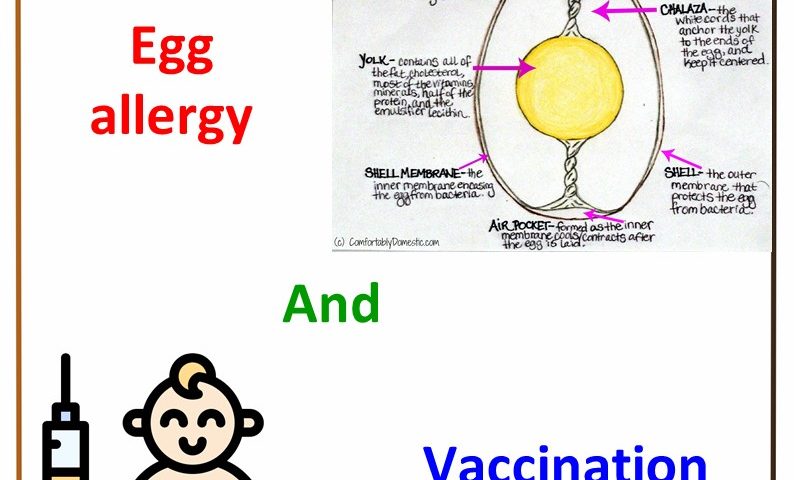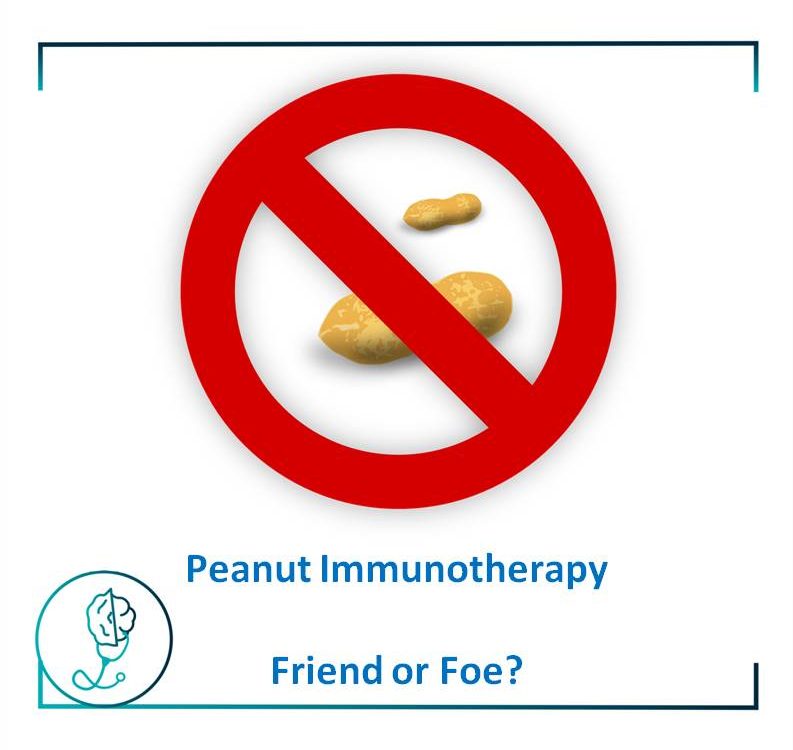Vaccines and Egg Allergy

Non-allergic Rhinitis
08/11/2020
Cow’s milk protein allergy or lactose intolerance?
12/01/2021A common source of debate, misconception and confusion is “𝘤𝘢𝘯 𝘮𝘺 𝘤𝘩𝘪𝘭𝘥 𝘣𝘦 𝘷𝘢𝘤𝘤𝘪𝘯𝘢𝘵𝘦𝘥 𝘪𝘧 𝘩𝘦/𝘴𝘩𝘦 𝘩𝘢𝘴 𝘢𝘯 𝘦𝘨𝘨 𝘢𝘭𝘭𝘦𝘳𝘨𝘺?”.
Especially now, with the circulating Pfizer and AstraZeneca (Oxford) COVID19 vaccines, many have asked me about their safety.
But let’s start with the basics.
The process of growing a virus in an egg leads to that virus becoming less infectious to the human being, but still leading to a protective effect against potential infections in the future.
After a virus is injected, the egg will be sealed with gelatine. This is normally made from pork protein.
In the process of collecting the grown virus from the egg, a small amount of protein will come along as well. This can potentially lead to an allergic reaction.
𝐌𝐌𝐑
- Studies have shown that this vaccine may contain from no amount to 1ng per 0.5ml of egg protein.
- Food challenges done on egg-allergic patients showed most people would react to amounts of 50-100mg, with some as low as 2mg of egg protein.
- This means the amount on the vaccine is too small to cause an allergic reaction.
Saying this, other components might lead to allergic reactions.
- The ones I am referring to are 𝐆𝐞𝐥𝐚𝐭𝐢𝐧𝐞 (𝐩𝐨𝐫𝐤 𝐨𝐫𝐢𝐠𝐢𝐧) and 𝐍𝐞𝐨𝐦𝐲𝐜𝐢𝐧.
- Both have higher concentrations than Ovalbumin.
Flu vaccine
- 𝘛𝘩𝘦 𝘚NIFFLE 𝘴𝘵𝘶𝘥𝘪𝘦𝘴 have shown the safety of the Nasal Flu vaccine.
- Several studies have shown that the LAIV (Live Attenuated Influenza Vaccine) that contains less than 0.12μg/mL (so 0.06 μg for a 0.5 mL dose) is safe for patients with an egg allergy.
𝐑𝐚𝐛𝐢𝐞𝐬
To produce this vaccine, the virus is grown on chick embryonic fibroblast cells.
In case a patient with an egg allergy needs this vaccine, there are two other options that can be used, as they do not contain egg:
- Human Diploid Cell Vaccine (HDCV)
- Purified Vero Cell Rabies Vaccine (PVRV)
𝐘𝐞𝐥𝐥𝐨𝐰 𝐟𝐞𝐯𝐞𝐫 𝐯𝐚𝐜𝐜𝐢𝐧𝐞
- The virus for this vaccine is also grown on chick embryos.
- If a patient needs this vaccine, there is only one potential option.
- What I am referring to is a graded vaccination programme done in a hospital.
𝐈𝐦𝐩𝐨𝐫𝐭𝐚𝐧𝐭:
- As with the MMR vaccine, the Yellow Fever and the Rabies vaccines also contain Gelatine.
- So extra caution needs to be had in this case.
Finally, the COVID19 vaccines:
- “There is no egg or egg-related component of the Pfizer RNA vaccines.
- The Oxford AstraZeneca vaccine is produced in genetically modified human embryonic kidney (HEK) 293 cells.
This means both vaccines are safe to be used in egg-allergic children.
The only children who need to be vaccinated in a hospital are those with an allergy to eggs, with previous anaphylaxis to egg or who had a cardiorespiratory reaction needing admission to Intensive Care or those with coexisting active, chronic asthma.


